“I’m sorry Dave, I’m afraid I can’t do that”.
That chilling line from 2001: A Space Odyssey marked the moment an AI turned on its human creators.
AI often gets cast as the villain – but not always. In fact, a growing number of startups are using it to solve real-world problems and build a better future.
Less dystopia, more utopia.
In this post we’ll look at eight of the finest impact startups using AI for good social and environmental impact.
Not got time to read the full post? Fair enough, it’s quite long! So here’s the overview in handy slideshow format…
Rainforest Connection (USA)
Mission & AI Innovation: Rainforest Connection (RFCx) is a nonprofit on a mission to protect rainforests and their biodiversity using AI. They deploy solar-powered “Guardian” devices (built from recycled smartphones) in treetops to listen to forest sounds 24/7. An AI model then analyzes that audio in real time to identify threats like chainsaws, trucks, or gunshots, which are the tell-tale signs of illegal logging or poaching.
Sustainability Challenge: Deforestation and wildlife poaching are rampant in remote rainforests, often going undetected until it’s too late. These activities not only destroy habitats but also accelerate climate change by reducing carbon storage. RFCx tackles this selfish exploitation by providing early detection of illegal logging, enabling authorities to respond quickly and prevent nefarious forest loss.
Unique Approach: Instead of satellite images or patrols, RFCx uses bio-acoustic monitoring – an approach that doesn’t require so much investment but is also rapid. Their Guardians stream live rainforest audio to the cloud, where AI can instantly recognize the signature sounds of destructive activities. This real-time acoustic AI system can cover a radius up to several kilometers, even in extreme jungle conditions, alerting rangers the moment a chainsaw revs up, for example. It’s an efficacious fusion of old smartphones, renewable energy, and cutting-edge AI for conservation.
Impact/Potential: RFCx’s approach has already proven highly vigilant in multiple countries (from the Amazon to Africa to Southeast Asia to Croatia). By catching illegal loggers in the act, they have helped authorities intervene and prevent deforestation in critical ecosystems. Beyond threat detection, the continuous audio also provides insights into rainforest health – for example, monitoring the return of rare birds in protected areas. This AI solution holds the potential to safeguard forests and support biodiversity, globally, because it’s so scalable.
Kilimo (Argentina)
Mission & AI Innovation: Kilimo is an agritech startup based in Argentina that uses AI-driven analytics to make agriculture more sustainable. Its platform analyzes data from satellites, weather forecasts, and field sensors to provide farmers with smart irrigation recommendations. By applying machine learning to predict crop water needs, Kilimo tells farmers when and how much to irrigate for top yield with minimal water.
Sustainability Challenge: Kilimo addresses the escalating issue of water scarcity in agriculture. In Latin America, farming accounts for the vast majority of water use, and inefficient irrigation leads to waste and drought stress. The company’s AI platform helps tackle this by optimizing water usage on farms, helping crops get enough hydration without excess. This not only conserves water in drought-prone regions but also improves crop resilience and productivity.
Unique Approach: Kilimo’s approach is compelling because it combines diverse data sources (satellite imagery, meteorological data, soil and crop information) with AI to solve a very down-to-earth problem – when to water the fields. The result is a user-friendly decision tool for farmers. It’s a bit like a “smart weather advisor” for irrigation: farmers receive timely guidance via app or SMS, even in remote areas. By focusing on a single crucial input (water) and adding the power of big data, Kilimo brings advanced wisdom to everyday farming practices.
Impact/Potential: This AI-guided irrigation is making a big dent on the earth. Farmers using Kilimo have reduced water consumption by up to 20% while maintaining or boosting crop yields. In the past two years alone, the platform helped save a lake-sized 72 million cubic meters of water (about 19 billion gallons) across several Latin American countries. Kilimo’s reach now extends to Argentina, Brazil, Chile, Mexico and beyond. By scaling this tech, millions of gallons of water could be conserved, helping both the environment (through healthier river basins and aquifers) and farmers’ bottom lines.
Greyparrot (United Kingdom)
Mission & AI Innovation: Greyparrot is a London-based startup using computer vision and AI to make waste management better. Its system consists of smart cameras and AI software installed in recycling facilities to automatically recognize and sort waste by type. The AI can identify different types of rubbish (plastic, paper, metal, etc.) and even exact objects or brands on a fast-moving conveyor belt. This “waste intelligence” is provided live to operators or integrated with robotic sorters, so that far more recyclable material is recovered from the incoming stream of trash.
Sustainability Challenge: Greyparrot tackles the global waste and recycling crisis. Recycling plants often struggle with efficiency and accuracy – mountains of recyclable material still end up in landfills or incinerators due to sorting errors or contamination. By using AI to boost sorting accuracy and speed, Greyparrot helps divert crap that could be reincarnated away from landfills and back into the circular economy. It also addresses safety/environmental hazards by flagging non-recyclables (like batteries or electronics) before they cause fires or pollution.
Unique Approach: Greyparrot’s system can “see” garbage far better than humans can – it recognizes up to 89 categories of waste and can even estimate the size and value of each item in real time. Plant managers get a live feed of what’s coming through (e.g. an unwelcome batch of plastic) and can adjust processes instantly. With such clever vision, Greyparrot is transforming a very analog industry, turning dim conveyors into smart sorting systems. The approach is scalable to many facilities with little human oversight, which is quite the breakthrough for the recycling sector.
Impact/Potential: Though still an emerging company (founded in 2019), Greyparrot is already helping us reduce landfill. In 2023 alone, their AI scanned over 25 billion pieces of waste, helping to divert millions of tons of recyclables from landfills and incinerators. They have been rolled-out in facilities across Europe and Asia, and are partnering with major recycling operators. By increasing recycling rates and resource recovery, Greyparrot’s technology has enormous potential for environmental benefit – reducing waste pollution, lowering carbon emissions from producing new materials, and welcoming data-driven transparency to the recycling process. It’s an exemplar of AI for a more circular economy.
Okuafo Foundation (Ghana)
Mission & AI Innovation: Okuafo Foundation is a Ghanaian social enterprise using AI to help small farmers. Their team created the “Okuafo AI” mobile app, which uses image recognition to diagnose crop diseases and pests at an early stage. A farmer can snap a photo of a sick plant; the app’s AI (trained on thousands of images) will identify the pest or disease and recommend safe treatment – all without needing internet access. This allows rural farmers to get immediate tips literally right in the field.
Sustainability Challenge: Okuafo targets the problem of crop losses and famine caused by undetected pest infestations in West Africa. Smallholder farmers often lose a huge portion of their harvest (sometimes over 50%) to pests like fall armyworm. They may not recognize the early signs of an outbreak or know effective countermeasures that don’t cause further damage. This leads to overuse of hazardous pesticides or total crop failure. By catching pest infestations early and guiding farmers on integrated pest management, Okuafo helps reduce crop damage, improve yields, and avoid unrestrained chemical use.
Unique Approach: The app’s ability to work offline in remote villages is a game-changer. Okuafo’s team understood connectivity is a challenge in rural Africa, so they built an AI solution that runs on basic smartphones without continuous internet. This is where the app comes into its own – bringing cutting-edge AI to farms off the grid. Not only that, the solution is very user-friendly and local language adapted, so even farmers with little tech experience can use it. The approach uniquely combines indigenous knowledge (farmers can share local pest data) with cutting-edge AI, creating a feedback loop that improves the tool. It’s a low-cost, accessible innovation that meets farmers where they are.
Impact/Potential: Okuafo’s AI tool has shown remarkable impact among farming communities in Ghana and neighboring countries. It won the 2020 Zayed Sustainability Prize for its effectiveness after reports that it helped 30,000+ farmers reduce crop losses by up to 50% in its initial roll-out. Farmers using the app have been able to save their maize and cassava crops from devastating pests, leading to higher harvests and incomes. Equally important, it has led to more sustainable pest control – using the app’s guidance, farmers can apply the right remedies at the right time, avoiding blanket pesticide spraying. Okuafo is expanding its reach across West Africa, and its success is a sign of huge emerging potential: AI-driven advice could be extended to other crops and regions, helping millions of small farmers adapt to pests, diseases, and climate challenges in an environmentally friendly way.
Flying Fish Technologies (FFT) – (Australia)
Mission & AI Innovation: FFT is revolutionizing marine ecological monitoring with a fleet of AI-powered underwater gliders, notably the Vertigo3. These autonomous vehicles collect high-resolution imagery and environmental data at next-level speeds, enabling large-scale examinations of marine ecosystems, in not time at all. The gilders map at a speed that’s more than 100 times faster than classic methods, so it’s quite the leap.
Sustainability Challenge: Traditional marine surveys take ages, and they’re expensive and demanding. FFT addresses this by providing rapid, comprehensive data collection. Then, working with this data, folk can make better-informed decisions for marine conservation. Which is important given that in 2025 the world saw the worst coral bleaching event in history – with more than 84pct of the world’s corals affected by heat stress.
Unique Approach: By blending AI and machine learning, FFT’s gliders can identify species, map habitats, and detect ecological changes in real-time. Suddenly, the scope and accuracy of marine research can reach new heights.
Impact/Potential: FFT’s technology has transformed marine data collection, achieving in two years what traditionally took decades, thus accelerating efforts in marine conservation and sustainable resource management.
Intuitive AI (Canada)
Mission & AI Innovation: Intuitive AI develops AI-powered solutions like Oscar Sort, which assists users in accurately disposing of waste through real-time feedback and guidance, aiming to achieve zero waste in public and commercial spaces.
Sustainability Challenge: Improper waste sorting leads to contamination and reduced recycling efficiency – so much so that it’s estimated that around 25% of recycling can’t be recycled due to contamination. Intuitive AI educates and guides folk before they chuck stuff in bins, enhancing recycling rates and reducing landfill immigration.
Unique Approach: The technology is billed as the “world’s first zero waste platform”. One of the technologies, Oscar Sort, employs sensors and AI to identify waste items and provide immediate sorting instructions. Some platforms also feature gamification of the recycling process to encourage user engagement and better disposal habits.
Impact/Potential: Deployed in some of the world’s most popular spaces and events, including partnerships with cities like San Francisco, Intuitive AI’s solutions have improved waste diversion rates, showcasing the effectiveness of AI in promoting sustainable chucking of waste. Some of the biggest brands on the planet (yes, themselves responsible for a lot of the planet’s waste) are taking note and partnering with Intuitive – such as Pepsico. The gamification aspect has also turned the lobbing of waste into something less mundane, and more fun. A virtuous chuck(le).
OpenAtlas (Netherlands)
Mission & AI Innovation: OpenAtlas utilizes satellite imagery and AI to monitor deforestation and land-use changes, providing businesses with tools to back compliance with environmental regulations like the imminent EU Deforestation Regulation (EUDR). This legislation will become mandatory from Dec 31st 2025 for companies importing, beef, cocao, coffee, palm, rubber, soya and wood, to prove that their products are deforestation free (with micro businesses and small traders following in June 2026).
Sustainability Challenge: Illegal deforestation contributes to biodiversity loss, which is inexorably linked to climate change, and despite all the barking about sustainability – it’s still rampant, and not just in rainforests like the Amazon but also in forested areas of the EU and beyond. OpenAtlas offers real-time, high-resolution monitoring to detect and prevent unauthorized land clearing, promoting land management that’s protective of critical habitats.
Unique Approach: By combining remote sensing with AI, OpenAtlas delivers affordable monitoring that can scale. This kind of intelligence helps even small businesses to track and verify the sustainability of their supply chains. Until now, this has been a weakness in a lot of brands’ sustainability claims and looking to the future supply chain monitoring is only going to get more important.
Impact/Potential: Having analyzed over 498,000 hectares and identified numerous deforestation events, OpenAtlas gives companies the tools to take control of their environmental stewardship and regulatory compliance. As the EUDR rolls out, this impact is only going to expand.
Unspun (United States)
Mission & AI Innovation: Unspun aims to eliminate waste in the fashion industry through AI-driven, on-demand manufacturing. Their Vega™ 3D weaving technology produces garments directly from yarn, tailored to individual body scans. It’s a way to mitigate the problematic excess inventory and material waste that afflicts fast fashion.
Sustainability Challenge: The fashion industry is notorious for overproduction and waste – and is estimated to now cause 10% of global GHG emissions. Unspun tackles this disastrous excess by creating custom-fit clothing, minimizing unsold stock and the environmental footprint of apparel production.
Unique Approach: Combining body scanning, AI, and 3D weaving, Unspun offers a sustainable alternative to traditional garment manufacturing, reconnecting production with actual demand. The approach also gives people a better fit, making them look better while boosting the longevity of garments.
Impact/Potential: Recognized among the world’s top greentech companies, Unspun’s partnerships with major retailers like Walmart are a sign of the scalability and transformative potential of their sustainable manufacturing model.
The story doesn’t end here
So there we go, each of those eight firms is doing “AI for good” in its own way but every one is making a promising impact. They may be lesser-known brands but their approaches show AI taking a role in a more resilient world, rather than a baleful presence that’s sending us back into a new Dark Ages.
And of course this is just the prologue to a story that’s going to unravel over the coming years. There are plenty of other pioneering brands emerging from this effervescent scene. If you know of any doing important work then please let us know in the comments. And if you’re one of those brands then get in touch and we’ll see if we can add you to the list.
Are you interested in using AI sustainably for your company? Then check out our AI for sustainability services.

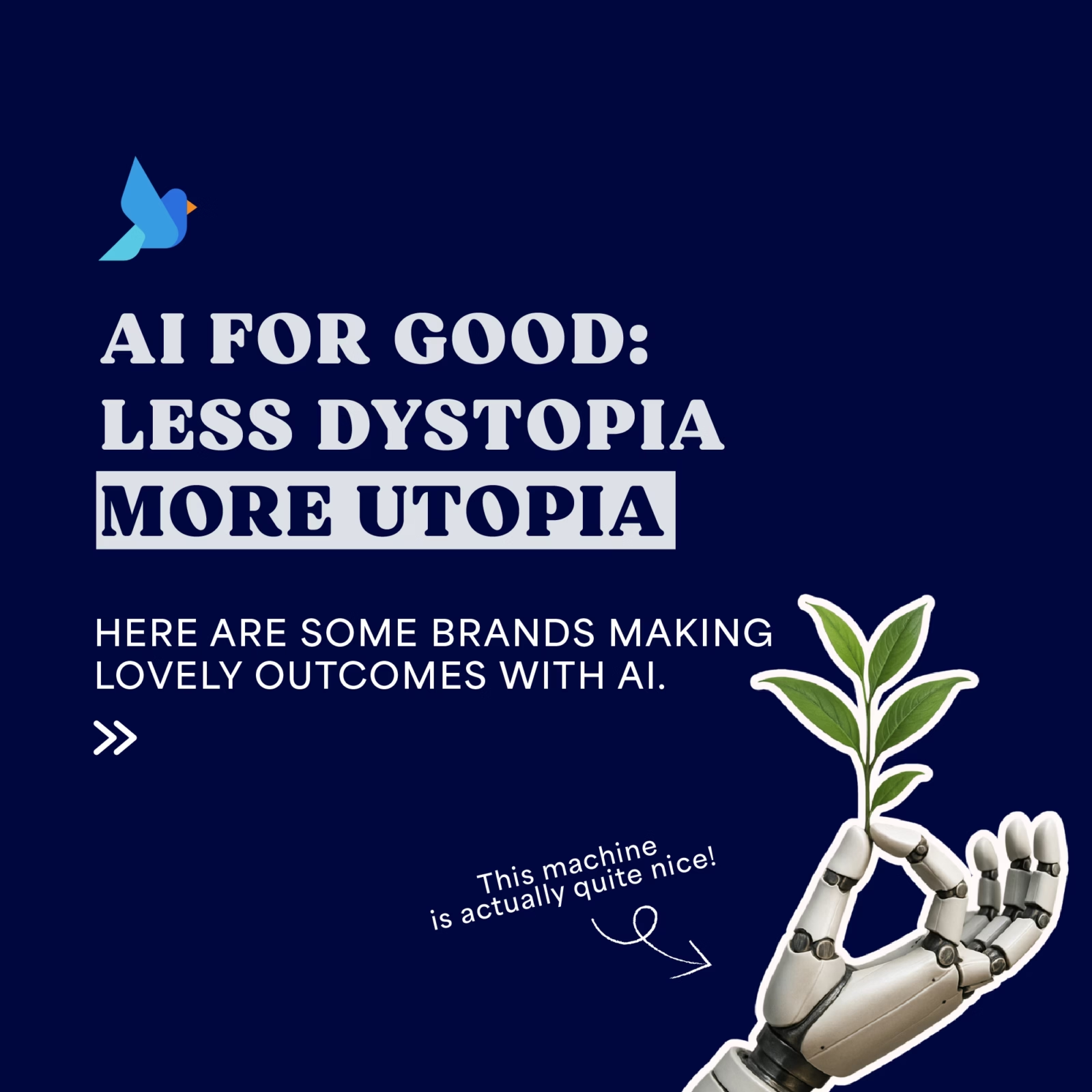
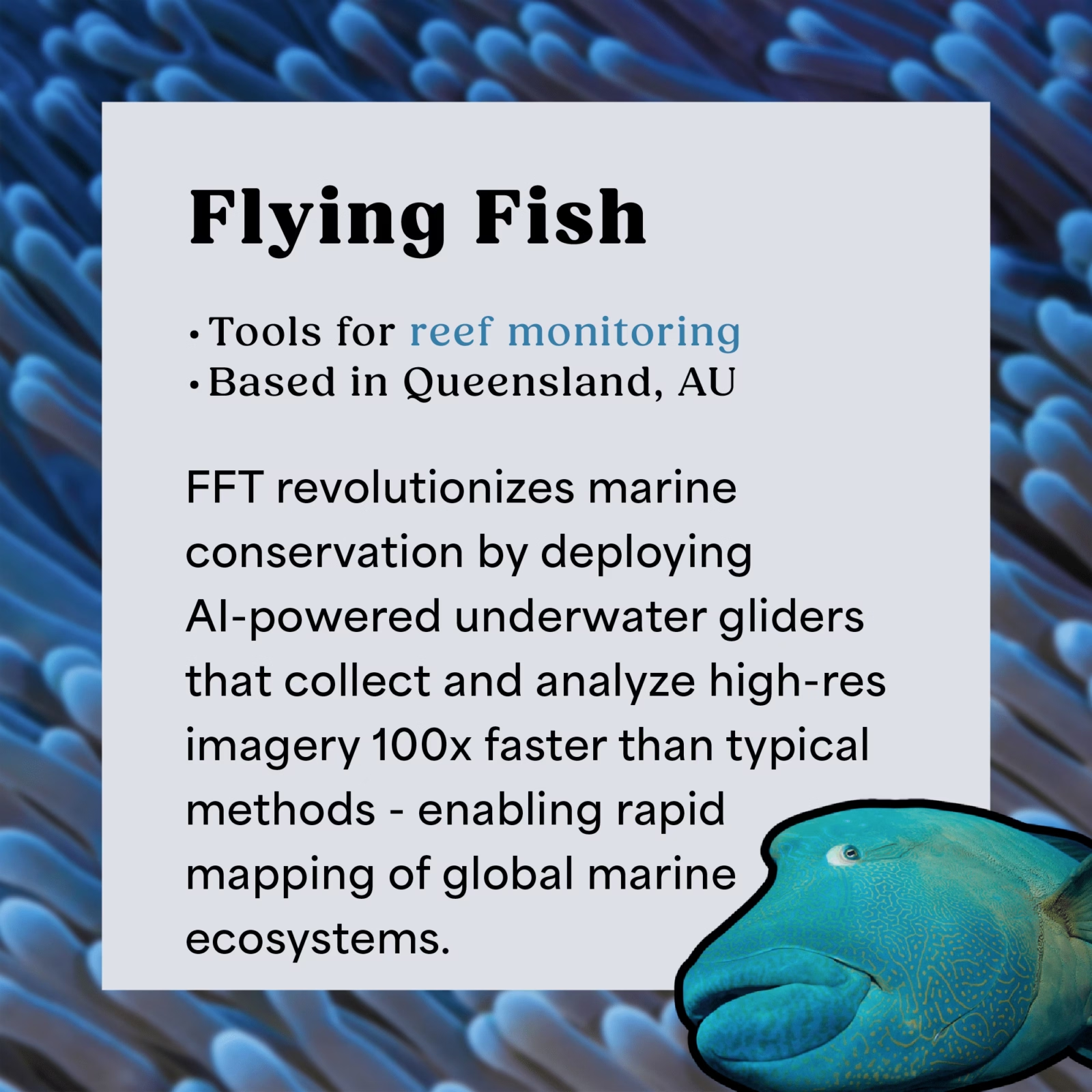
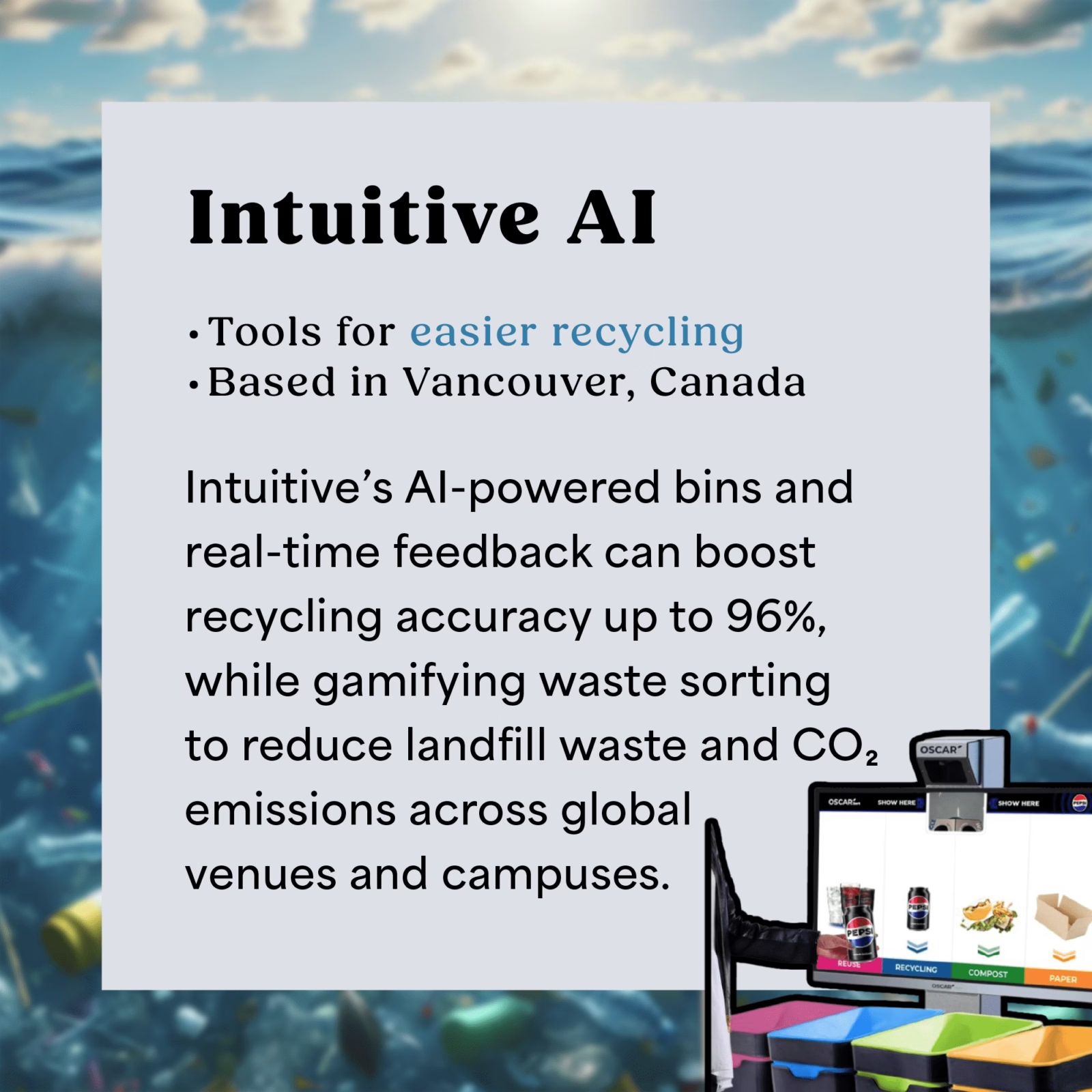
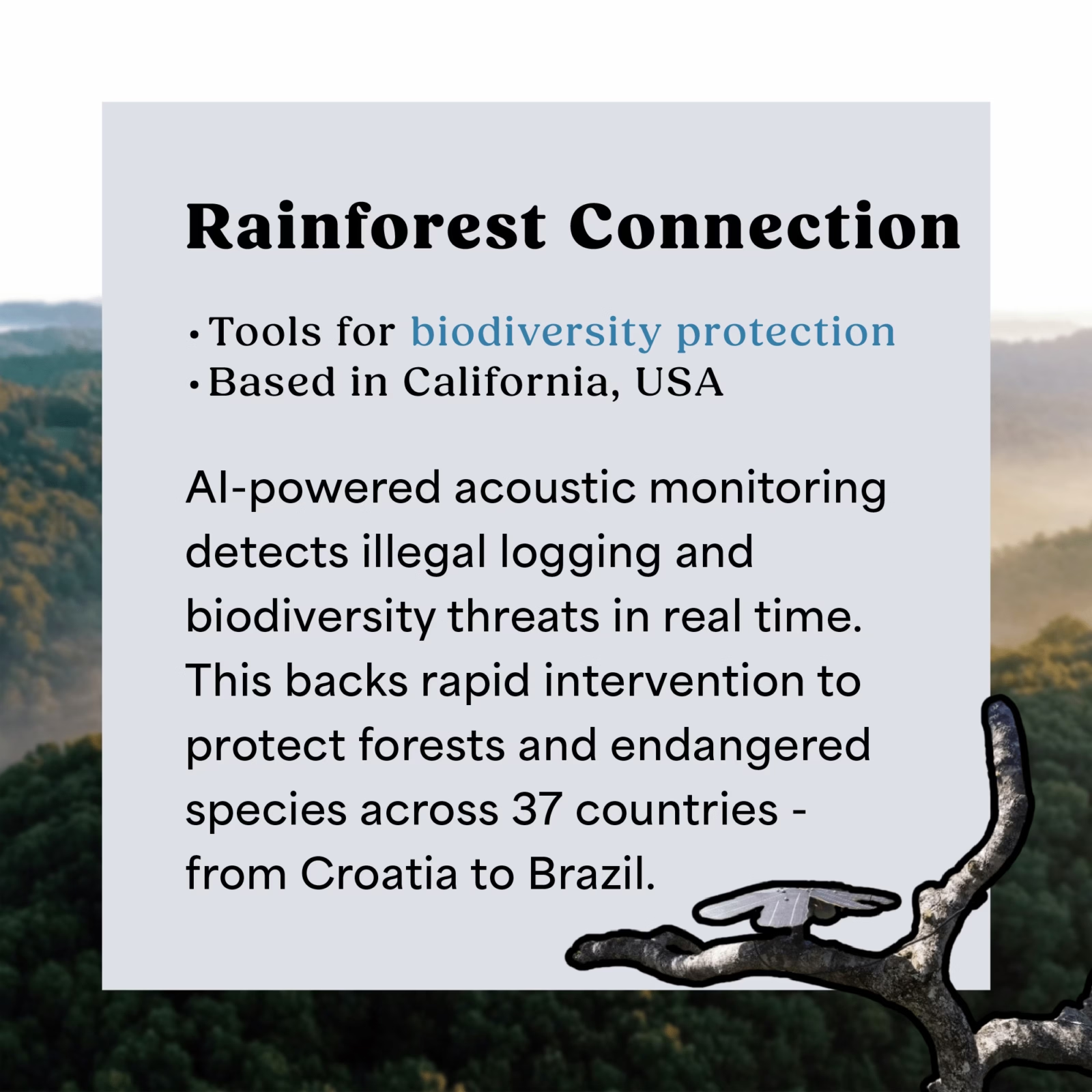
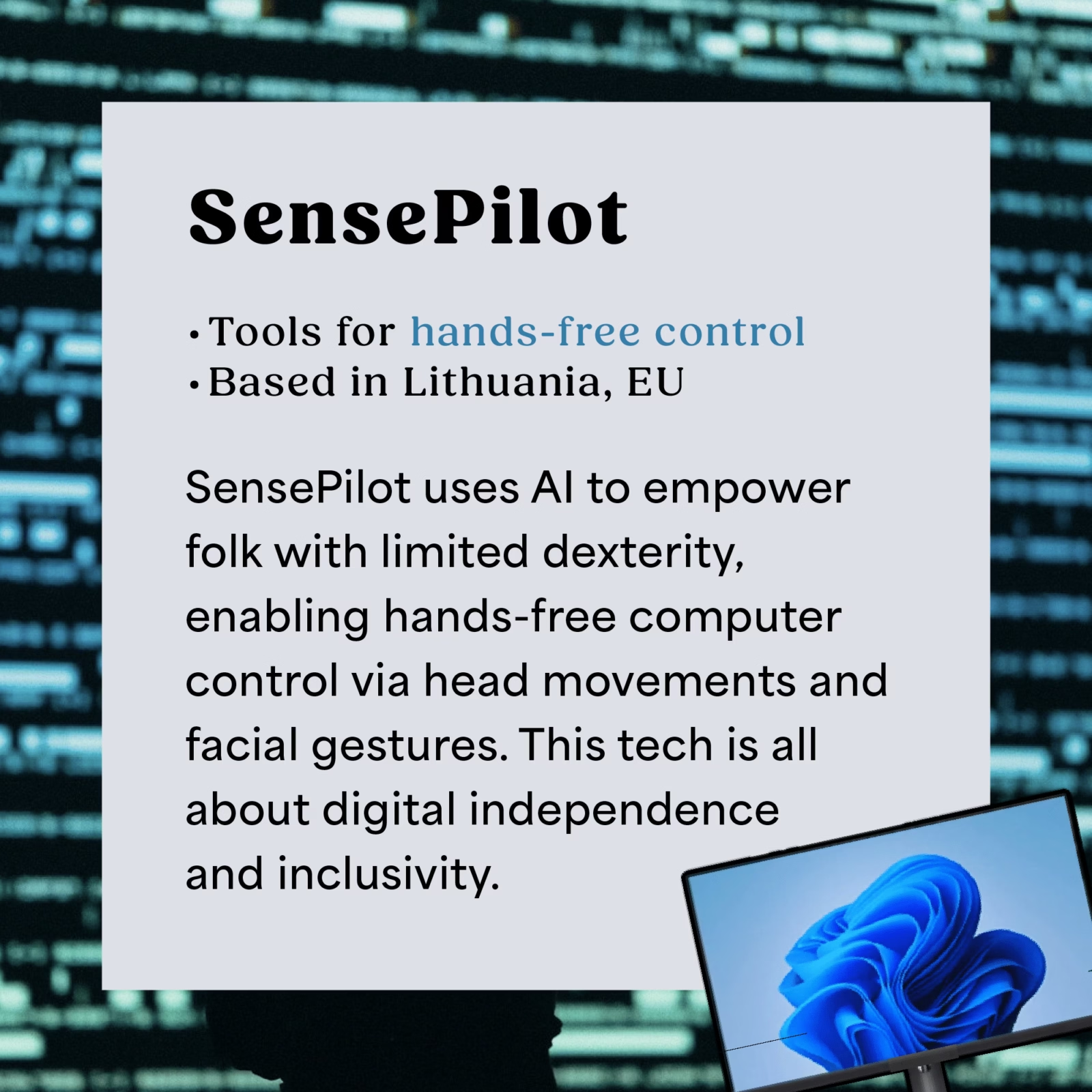
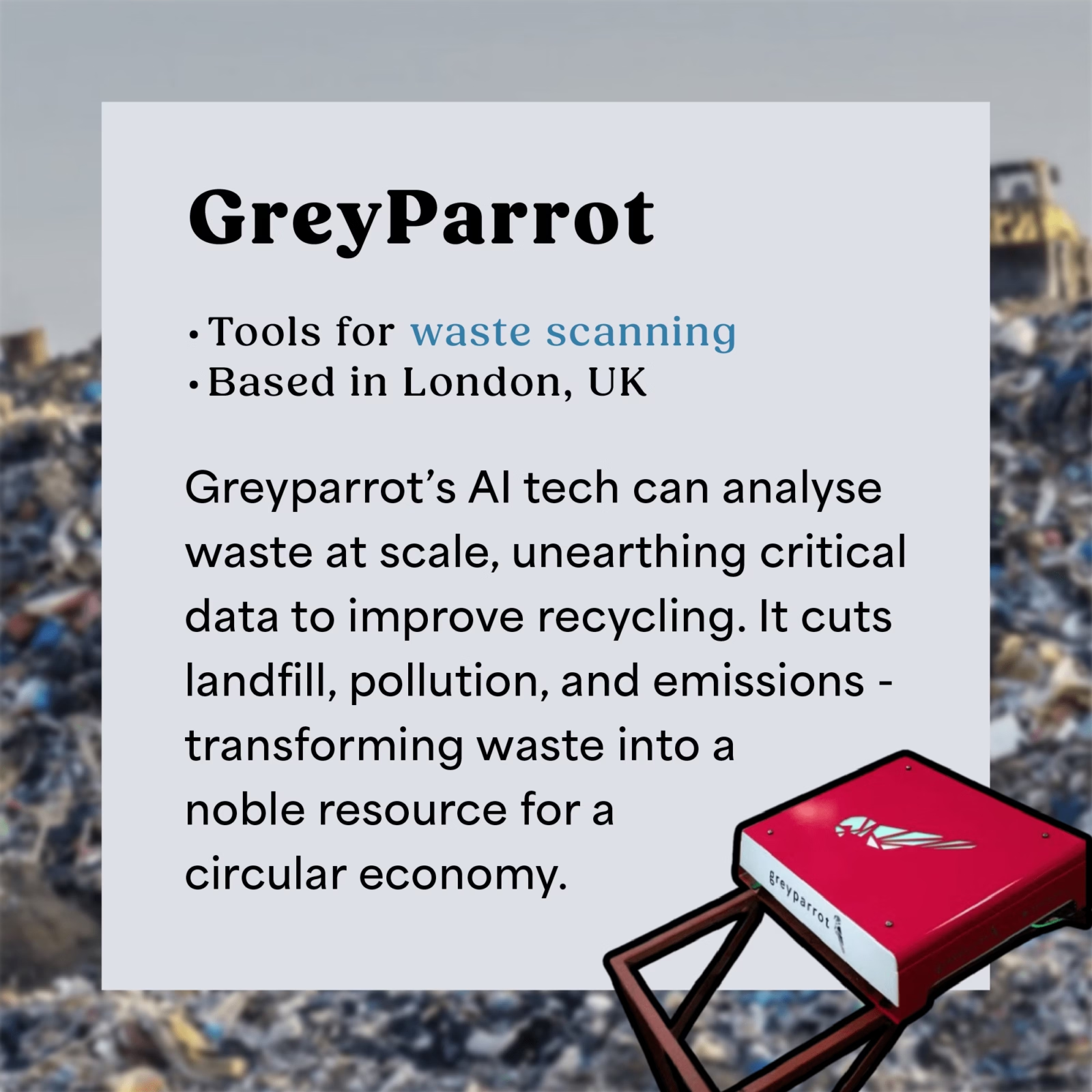
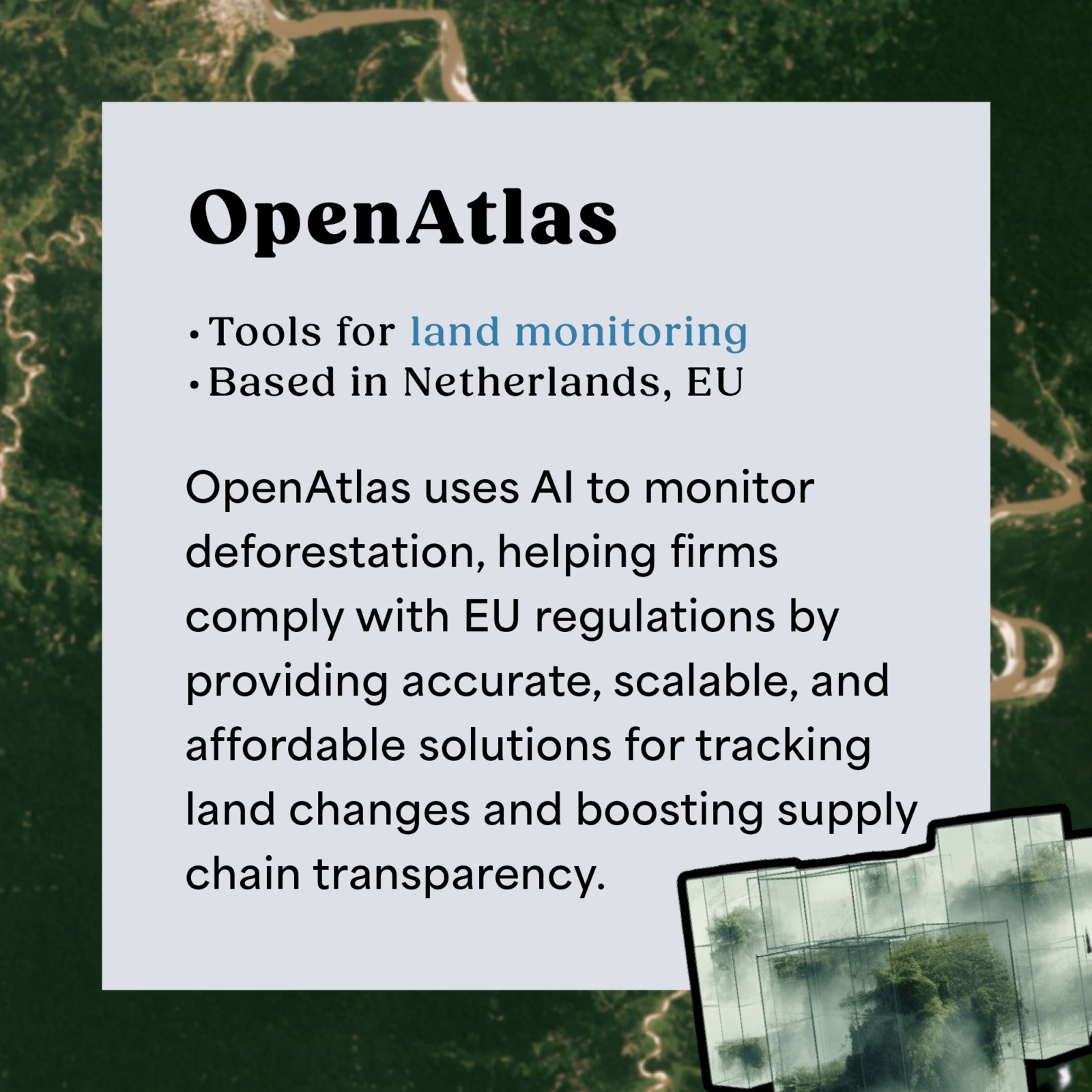
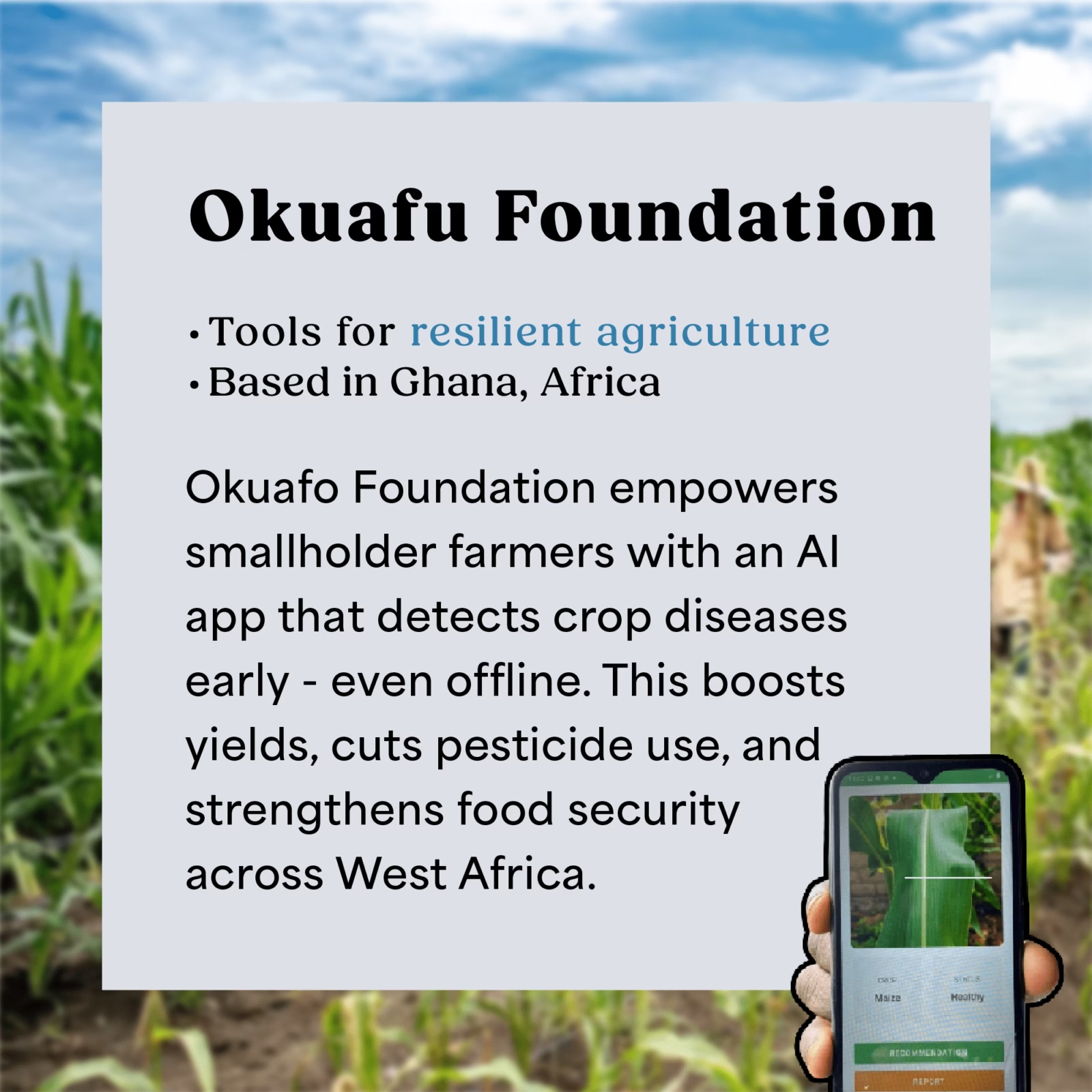
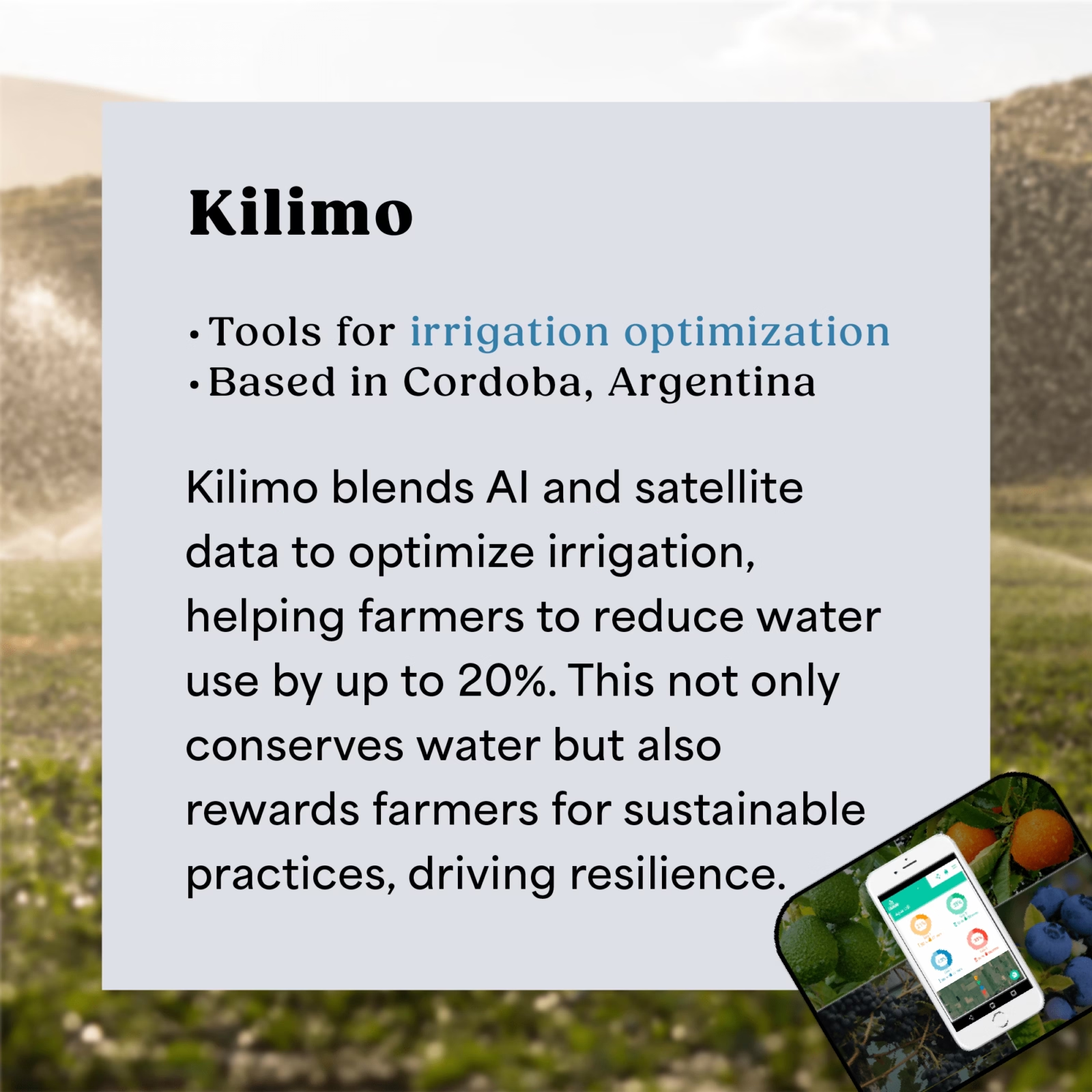


Leave a Reply